- FOKION AVGERINOS – DR. IKE: Athletic Director, Youth Mentor, and Healer
- American Hellenic Institute’s Golden Jubilee Celebration
- Leadership 100 Concludes 33rd Annual Conference in Naples, Florida
- Louie Psihoyos latest doc-series shocks the medical community The Oscar–winning director talks to NEO
- Meet Sam Vartholomeos: Greek-American actor
FAITH Scholarship for Academic Excellence Application
“FAITH: An Endowment for Orthodoxy and Hellenism” announced the 2017 FAITH Scholarship for Academic Excellence application period has opened. Each year, FAITH sponsors a series of merit-based scholarships for high school seniors entering college in the fall through this prestigious scholarship series. In the past, awards have ranged from $1,000 to $20,000 in value. The application, along with applicant criteria and instructions, can be downloaded from the FAITH website at: thefaithendowment.org/scholarships. All applications must be submitted by June 30, 2017. Scholarship winners will be announced August 2017. Applicants are encouraged to follow facebook.com/faithendowment for timeline updates.

FAITH Founder and Scholarship Review Committee Chair Dr. P. Roy Vagelos hosted the first Scholars Luncheon in New York City
In addition, applicants majoring in STEM fields (science, technology, engineering and math) are eligible to receive support for all four years of their undergraduate studies through the “FAITH Scholarship for Excellence in STEM.” To renew the award, students must major in a STEM field, maintain a 3.6 minimum GPA and continue to actively participate in organizations related to the Greek and Hellenic Orthodox community throughout their college career. FAITH Founder and Scholarship Review Committee Chair Dr. P. Roy Vagelos spoke on behalf of the FAITH Founders saying, “The Founders of FAITH are proud to support this important initiative to inspire the best and brightest young people to become future leaders within our community and their professional fields. Furthermore, a background in STEM subjects will be critical for obtaining graduate training and jobs in science, technology and engineering in the future. Our nation needs, and will need, people well-trained in these fields in order to remain globally competitive. Successful students who excel in these fields will receive a premium along with their award.”
Since 2004, FAITH has funded over 235 merit-based scholarships to some of the brightest young members in the Greek and Hellenic American community who rank within the top of their class. FAITH Scholars represent all Metropolises across the nation and enroll in universities ranging from UCLA to Columbia University to pursue a diverse set of career paths including Neuroscience, Education, Government and Aerospace Engineering. These exceptional young people have played, and continue to play, an integral role inside and outside the classroom as leaders in their churches, communities and schools and garner high recommendation and praise from their mentors and teachers for displaying the scholarly intellect lauded by their Hellenic ancestors and a strong spirit of community service and good citizenship in line with their Greek Orthodox Christian values.
Demetri Maxim, a two-time first place winner at the Intel Science and Engineering Fair, was awarded one of the FAITH Scholarships for Academic Excellence in STEM in 2016 and said, “Being able to attend Stanford is something that wouldn’t be possible without FAITH. I greatly appreciate FAITH’s generosity in making this possible.” Maxim is majoring in biology at Stanford University.
“I know the core mission of the FAITH Endowment is to promote an understanding of the Greek Orthodox faith and Hellenism. I am honored to be seen as a promising young leader in my community and will strive to continue to fulfill my responsibility in this endeavor as I enter my college years and after,” said Eleni Kohalikis, a 2016 recipient of the FAITH Scholarship and student at Cornell University.
In January, Dr. Vagelos hosted the first FAITH Scholars Luncheon at Estiatorio Milos in New York City. Past and present recipients of the FAITH Scholarships for Academic Excellence were celebrated at the luncheon and were given the opportunity to meet Dr. Vagelos, share their career and academic goals and connect with fellow scholars.
Through this initiative, FAITH: An Endowment for Orthodoxy and Hellenism celebrates excellence in education for the future generations of the community while promoting Hellenism and supporting the Greek Orthodox faith. For more information, their website is thefaithendowment.org
FAITH is thrilled to launch its FAITH Scholar Spotlight series. Each month, we will highlight recipients of the FAITH Scholarship for Academic Excellence award on our blog at www.thefaithendowment.org/blog. These young people represent some of the brightest young members in the Greek and Hellenic American community who display the scholarly intellect lauded by their Hellenic ancestors and a strong spirit of community service and good citizenship in line with their Greek Orthodox Christian values. We are kicking-off this special FAITH Scholar Spotlight series with Kristina Tougas (2013 FAITH Scholarship recipient) and Demetri Maxim (2016 FAITH scholarship recipient).
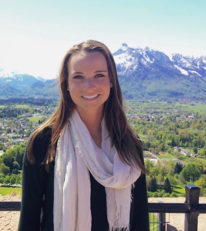
Kristina Tougas
Kristina Tougas, 2013 FAITH Scholarship Recipient
Sustainable Development and Architecture, Columbia University
In a few months, you will receive your diploma from Columbia University. Looking back on these four years, what was your most rewarding college experience? The most rewarding experience of my college career was studying abroad in Athens, Greece, during the spring semester of my junior year. I had not travelled much previously, and certainly not alone, so to make the decision to put myself that far outside of my comfort zone was simultaneously terrifying and so exciting. Studying my major, architecture, in the place that it all began greatly enriched my education and opened my mind. I met so many people from all over the U.S. and the globe who I keep in touch with to this day. Studying abroad was a growing experience both intellectually and personally, and it formed me into a more open, cultured, and adventurous version of myself.
What was your favorite experience you had while studying abroad in Greece? My favorite, and most rewarding, class that I’ve taken would be the Ancient Greek Architecture class taken during my semester in Athens. My professor, Tasos Tanoulos, is the director of the restoration of the Propylaea at the Acropolis, and took us to areas of the Acropolis most people never get to see, including inside and underneath it! To have class at the Parthenon every Monday and Wednesday morning remains one of my favorite experiences of my college education, not to mention an extremely influential one for my architectural studies.
In addition to contributing to Columbia’s unprecedented 7-0 record as a member of the women’s varsity swim team, you interned for architecture firms and served as director for the Environmental Stewardship Fund. Between class and your extensive campus involvement, how did you stay connected to your Hellenic-American community on campus? At Columbia, I have been a member of OCF, the Orthodox Christian Fellowship, for 3 years, serving a semester as Vice President during my Junior year. Being a part of OCF has been extremely rewarding and beneficial as a means of connecting with my fellow Orthodox Christians and coming together for prayer and activities at a level of comfort that only comes with those with whom you share your faith. I’ve made great friends through OCF and look forward to maintaining those relationships after graduation.
You will graduate with a combined architecture and sustainable development degree. What inspired you to pursue this field? I have always been interested in the process of building and creating. The idea of bringing something to life that was not there before you, but will last long past you, is such a fascinating concept to me. While travelling throughout Greece and other parts of Europe during my semester abroad, I realized just how deeply architecture connects people across centuries and throughout the world. I want to be a part of that process, especially by building structures that benefit the communities they are a part of by providing people with affordable homes, convenient transportation, and means of connecting and interacting with one another. My studies of architecture and urbanism have taught me just what a city can do to bring together the people who inhabit it, and I want to give back to the cities that I love with infrastructure that makes their lives better and more interconnected.
How do you plan to use this degree post-graduation? Beginning this June, I will be working as a project engineer for Skanska USA Building in Manhattan, New York. I will be managing construction projects in the City, particularly that of high-rise buildings and transportation infrastructure. One of the most exciting aspects of working for Skanska is its exchange program, Skanska Unlimited, which allows employees to work on a project for 4-6 months at a Skanska office in a country of their choice. I plan to take advantage of this program in the near future, as an opportunity to merge my passion for architecture and building with my newfound love for traveling, and impact communities across the world with the structures I help create.
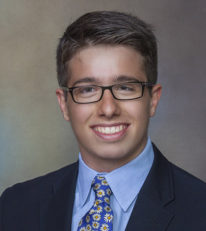
Demetri Maxim
Demetri Maxim, 2016 FAITH Scholarship Recipient
Biology, Stanford University
What inspired you to pursue Biology? I’ve been hugely interested in biology ever since I started doing biomedical research around kidney disease during the summer after my freshman year of high school. My family has been affected by the genetic kidney ailment, polycystic kidney disease (PKD), for four generations, and I’ve decided to dedicate my undergraduate education to continue working towards a cure for the disease whether I’m in the classroom learning about the intricate biology of the kidney or in the research lab building off of my previous research in the field. I hope to continue past my undergraduate degree to pursue an MD-PhD and eventually a life-long career as a physician-scientist in the kidney field. I’m really passionate about this area of research and know that I will be able to give back to my family and the millions of other patients suffering from PKD all over the country through my work.
You started college with a diverse range of experience in your field. How has this been useful as a freshman at Stanford? My favorite experience at Stanford so far occurred during my Introduction to Emergency Medicine class this fall. This class involved two weekly lectures, which were supplemented by several shadowing shifts in the Emergency Department at the Stanford Hospital to gain exposure to real-life emergency medicine. On one of my shifts for this class, the Attending Physician (AP) on the shift was struggling to communicate with a trauma patient who had just gotten into a terrible car crash with her son in the car. The doctor didn’t know what language the patient was speaking, but after looking at the patient’s chart they realized it was Greek, a language that they had no interpreters on staff for at that time. The AP was frantically running around the ED looking for anyone that spoke Greek that could communicate with this patient and attain consent for the surgery the doctor was about to conduct. I volunteered immediately and was able to communicate with both the patient and her son to let them know what was going on and translate how they were feeling back to the doctor. It was so awesome to see that my language skills had helped save a patient’s life, and for this reason, I will remember this class for the rest of my life.
How else have you maintained community connections away from home? I’ve connected with other Greek and Cypriot undergrads at Stanford through various religious organizations such as the Chi Alpha Christian Fellowship.
College introduces us to many new ideas. How have you been challenged? This past summer, I was mentored by an amazing genetics professor in Boston named Dr. George Church, and George told me before I left for school that if I wasn’t failing, then I probably wasn’t trying hard enough. I took this advice to heart and immediately signed up for difficult classes that were one or two levels above the classes that I was placing into. I had to work really hard all fall to stay afloat, but it was super rewarding in the end and I learned so much more than I would have if I just took the easy way out. My hardest class was Programming Abstractions, which is the second level introductory programming course at Stanford that is primarily taken by students in computer science and related majors. I routinely spent 20+ hours a week on the assignments for this class because I didn’t have the previous programming background that the other students had, but I learned a lot about programming and am hoping to continue taking courses in this field over the next four years.
What about challenges outside the classroom? One of the most rewarding experiences that I’ve had at Stanford occurred just after I arrived on campus. I was participating in a 6-day backpacking trip as part of one of Stanford’s Pre-Orientation Trips (SPOT). I had done a lot of hiking and backpacking growing up and during high school, so I was feeling pretty good about the trip, but I hadn’t realized that we would be hiking at elevations above 7000 feet for the entire trip. Over the next six days, we summited several mountains with 50 pound packs on, I got to explore a completely different part of the country, and I became really close with my fellow classmates. It was super rewarding to struggle through the trip and I was so happy that I made it!
And finally, what are your goals for the future? I am hoping to take a gap-year between college and graduate school to work in a research lab in Greece or Cyprus, while preparing my applications for MD-PhD programs. I hope to become a nephrologist and work on research as a physician-scientist to treat other people that are also affected by kidney disease.

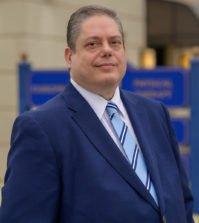
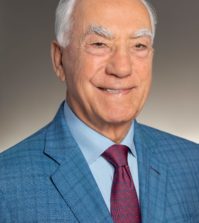
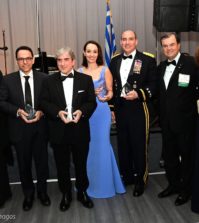
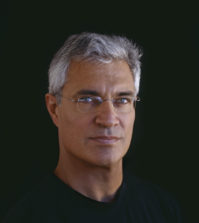










0 comments